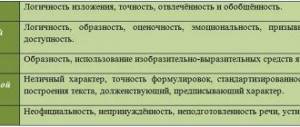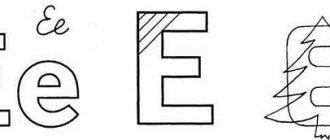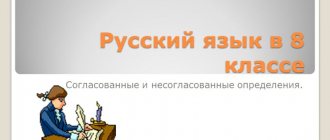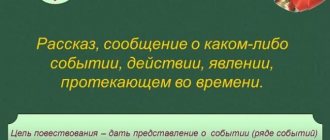Modern abbreviations
The use of short forms in modern life has moved from a written form of expressing thoughts to oral, colloquial speech.
The speech of modern man is replete with complex abbreviated words. In the Russian language, these word forms began to appear not so long ago - about 100 years ago. They began to be introduced and used en masse during the formation of Soviet power in the USSR. Contractions can be formed in different ways. Let's look at complex word abbreviations and examples:
Abbreviations by initial letter:
- SB - security service;
- RSU - Rostov State University;
- MVD - Ministry of Internal Affairs;
- GIBDD - State Road Safety Inspectorate;
- USA - United States of America.
Compound words based on initial sounds:
- Youth Theater - theater for young spectators;
- USE - Unified State Exam;
- MOU - municipal educational institution;
- GITIS is a state institute of theatrical art.
Words from root compounds are the most diverse group. Compound noun examples:
- chief accountant - chief accountant;
- special correspondent - special correspondent;
- kolkhoz - collective farm;
- Yunnat - young naturalist;
- battalion commander - battalion commander.
Short forms , which consist of the root of the first word and the entire second:
- salary - wages;
- technical passport - technical passport;
- veterinarian - veterinarian;
- first aid post - medical center;
- construction industry - construction industry;
- orphanage - orphanage.
Mixed abbreviations - can consist of the root of the first word and the first letters of the rest of the word form. Here are the most famous:
- gorono (sometimes written gorono) - city department of public education;
- district (or districtONO) - district department of public education.
Summary of lesson in Russian language, 6th grade. Topic “Complex words”
Russian language lesson in 6th grade on the topic “Complex words”
Description of the material: A lesson in learning new material, entertaining material and a game are used. The lesson is structured in accordance with the requirements of the Federal State Educational Standard. It will be of interest to Russian language teachers. Topic: Complex words Purpose of the teacher: To form a concept about complex words and their formation Type of lesson: Lesson explaining new material Planned educational results: Subject-specific
(scope of mastery and level of competence): know the concepts of “complex words”, “connecting vowels”;
be able to analyze the composition of complex words; be able to use complex words in speech and write correctly when writing. Meta-subject
(components of cultural competence experience/acquired competence): mastery of techniques for selecting and systematizing material on a specific topic;
ability to independently search for information; the ability to transform, store and transmit information obtained as a result of reading or listening. Personal:
understanding the decisive role of the Russian language in the development of intellectual, creative abilities and moral qualities of the individual;
its significance in the process of obtaining school education Methods and forms of teaching: Observation of language; creating problematic situations; individual, group, frontal Basic concepts: Compound words, connecting vowels
Lesson progress
I Motivation - Hello, children! Let's start the Russian language lesson. Write down today's date. Homework check Vocabulary dictation Transform, object, despise, stop, overcome, get used to, invite, prepare. /Comparison with the sample. II. 2. Actualization and trial learning activity - What ways of forming words do you know? /prefix, suffix-prefix, suffixless, addition, transition of one part of speech to another/ III. Identifying the location and cause of the difficulty - Guess the riddle: What kind of brave bird flew across the sky? Is only a white trail left from it? What is this? /Airplane/ - How do you spell this word? Why is it interesting? How is it formed? Physical exercise We will put our palms to our eyes, We will spread our strong legs, Turning to the right. Let's look around majestically. And you also need to look to the left from under your palms. And - to the right! And also Over the left shoulder! IV. Goal setting and building a project to get out of a difficulty - What goals will we set for ourselves? 1. What are words consisting of two roots called? 2. What connecting vowels are used to form complex words? V. Creative practical activity for the implementation of a constructed project 1. Form complex words. Water, falling. Cutting down the forest. Ice, chop. /Waterfall, lumberjack, icebreaker/ Porridge, cook. Storm, break. Bird, catch. /cook, windbreaker, bird catcher/ - Write down the words, sort them out by composition. Compare the words and draw a conclusion. 1. Compound words consist of two roots. 2. After hard consonants the connecting vowel o is written, after soft consonants - e. Reading the rule. VI. Primary consolidation with commenting 1. Replace brief interpretations of words with a complex word, sort it out by composition. A worker who welds steel. /Steelworker/ One who breeds farm animals. /Livestock breeder/ A special pan in which food is quickly cooked. /Pressure cooker/ A farm where poultry is raised. /Poultry farm/ A trait of people who willingly receive guests. /Hospitality/ 2. Game - competition “O and E” The class is divided into two teams “O” and “E”. Compound words with a missing connecting vowel are written on the board. Dust..suction, ice..col, pedestrian..walk, hay..mower, oil..plant, telephone..transmission, self..var, heat..cart, garden..water, mouse..trap, birds..water, earth..scoop Team “O” writes down words in which the letter o must be inserted, team “E” - the letter e. Then a mutual check is carried out to see how many mistakes each team made, and the winning team is determined. VII. Independent work with self-test according to the standard Ex. 216. First write down the complex words, indicating the conditions for choosing connectives o and e; then write down the remaining words, indicating the suffixes in them. How is the last word formed? VIII. Inclusion in the knowledge system and repetition. – Read the poem from the program “Baby Monitor” and say what method of word formation it talks about. The plane flies forward, the locomotive does not lag behind, even at sea the steamboat also speeds up. Everyone is in a hurry to find out how to write them correctly - these complex words cannot bear the letter A. But if you put the letter O - the speed will be - wow! The cook cooks the porridge, the steelmaker cooks the steel for us, the horse is led by the horse breeder, the sailor sails into the sea. All names are good, Just write them correctly, We won’t put the letter I inside these words, But we’ll write E - then everyone will say: “THIS IS YES!” -Copy out all the complex words from the poem, sort them by composition, underline the connecting vowels. IX. Reflection. — What new did you learn in the lesson? — What difficulties did you encounter? — How did you overcome them? — Show me the card, in what mood are you finishing the lesson? X. Homework. § 41, learn the rules, ex.
217 Download Russian language lesson in 6th grade on the topic “Complex words”
We recommend watching:
Summary of a Russian language lesson in the 6th grade of a special (correctional) school of the VIII type. Summary of a Russian language lesson in the 6th grade of a correctional school of the VIII type on the topic “Case endings and Didactic game in the 6th grade in the Russian language. Summary of a lesson-game in the Russian language in the 6th grade. Spelling pronouns
Similar articles:
Elementary school quizzes with answers
Summary of a Russian language lesson in 3rd grade according to the “School 2100” program
Lesson summary in Russian language 6th grade
Final test with answers in the Russian language for grades 5-6-7
Methodological development of a lesson in the Russian language. Creative essay: Sea voyage to the future
Declension of compound words in Russian
Many words in this group cannot be inflected.
For example, initial abbreviations are not declined: LLC, PJSC, etc. Those abbreviations in which the reference word is feminine or neuter are also not subject to inflection: GES - hydroelectric power station. When using a declination, the abbreviation should always be written in capital letters, and the declination itself is indicated in lowercase letters: TYUZY, SBSHNIKI.
There are many more abbreviated words in Russian than in other languages. Some industries formulate special rules for writing such words. For example, all research works (diploma, dissertation) are written and checked for compliance according to special GOST (7.0.12−2011). By the way, “GOST” is a state standard.
Abbreviations and abbreviations greatly simplify speech, as well as writing complex names and names. At the same time, in order not to be an amateur and to understand speech in which many such forms occur, it is imperative to know the decoding and meaning of these stable short expressions. Sentences with compound words can be difficult. Soviet-trained people understand this terminology much better than the modern generation of young people. The speech and consciousness of Soviet people were permeated with various short words. Modern speech is gradually getting rid of the Soviet legacy.




